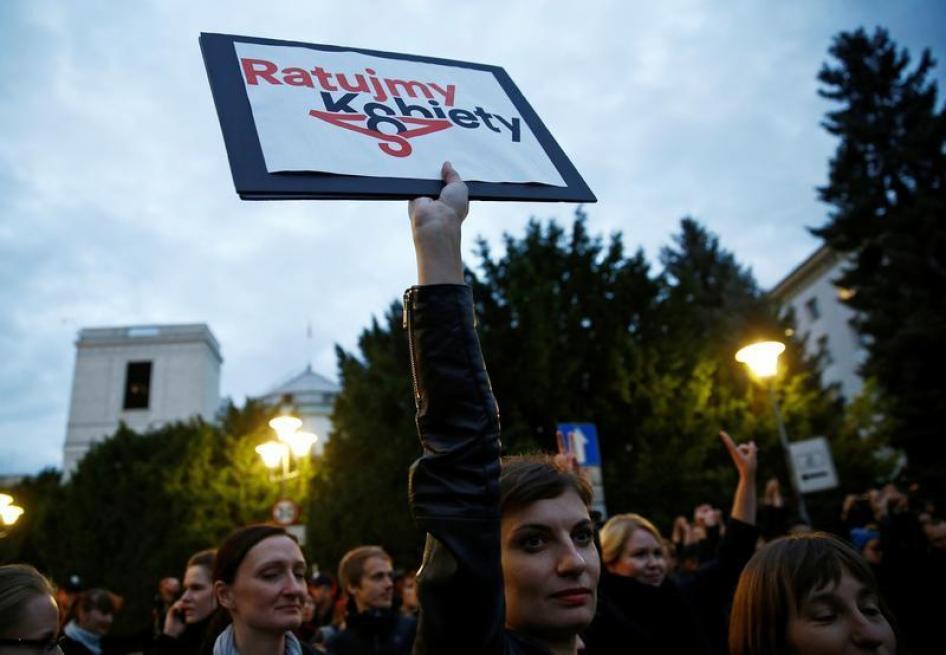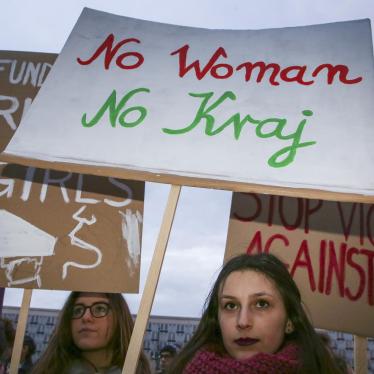Coat hangers strung from trees and piled up in front of government buildings by protesters serve as a grim reminder that women’s lives are at risk under Poland’s proposed new abortion law.
The bill, now under review by parliamentary committees, would only permit abortion to save a mother’s life, even though current law is already among the most restrictive in Europe. Doctors’ use of a “conscience clause” to opt out of performing an abortion has already put it out of reach for many Polish women.
But the proposed law would eliminate access even for survivors of rape or incest. And it threatens women who miscarry with an investigation, because it makes causing death of a “conceived child” punishable with a prison sentence. This provision is also likely to scare away the few doctors still willing to provide abortions.
Women in Poland are coming out in force under the banner #CzarnyProtest, or Black Protest. Along with mass marches, they are planning a nationwide strike on Monday. Activists like Krystyna Kacpura, director of Poland’s Federation for Women and Family Planning, say that many women want liberalization of the abortion law. “They are not going to give up so easily,” she said. “Polish women have awoken.”
Ending their already scant access to abortion puts Poland at odds with its obligations under the European Court of Human Rights and international law. It also won’t stop abortions but just push them into back alleys and bathrooms, where the risks of long-term damage and death multiply. Most of the more than 21 million unsafe abortions every year occur in the developing world – but with laws like these under consideration in Europe, that could change.
On Wednesday, the European Parliament is to debate reproductive rights in Poland: members should condemn the proposed law and call on the Polish government to abide by its international and European obligations and end this attack on women’s rights.
Poland’s parliament should stop the bill, or put half their citizens at risk.
Polish women know that this law is a life and death issue, and they aren’t about to back down. As Kacpura said, “The struggle for women’s reproductive rights has just begun.”








